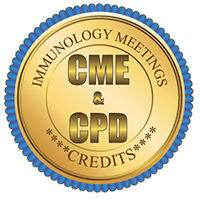Leiming Xia
University of Michigan Comprehensive Cancer Center, USA
Title: Phase I clinical trials for the PD-1/MUC1 CAR-pNK92 immunotherapy
Biography
Biography: Leiming Xia
Abstract
Mucin1 (MUC1), as an oncogene, overexpressed in many human carcinomas and plays a key role in the progression and tumorigenesis. MUC1 specific chimeric antigen receptors (CARs) modified T/NK cells has been shown to be an effective approach for inducing MUC1+ tumor cells death. However, treatment failure with CAR-T/NK therapy was usually caused by the high expression of negative immune-regulatory molecules in tumor microenvironment. PD-L1 has been identified as negative checkpoint molecules that promote immune evasion of tumor cells. The interaction of PD-1 and PD-L1 inhibits the function of tumor-infiltrating lymphocytes or infused T/NK cells while activating the negative immune-regulatory cells in tumor microenvironment. To conquer these barriers and transform the PD-1/PDL-1 suppression effect into a positive regulation, we engineered clinically applicable NK-92 cells by lentiviral gene transfer to express two kinds of chimeric antigen receptors (CARs) comprising an anti-MUC1 or anti-PDL1 scFv antibody fusion protein with CD28-CD137 as a signaling moiety and truncated PD1 peptide. Anti-MUC1-CAR expression by gene-modified NK92 cells speciï¬cally and efï¬ciently lysed MUC1 positive tumor cells in vitro and in vivo. In this study, 10 patients with different kinds of tumor (lung cancer, pancreatic cancer, colon cancer and ovarian cancer) were enrolled with PDL-1 and MUC-1 positive through pathological examination, then CAR-NK cells were infused several times into the patients (1×109 cells total). Of 10 patients, 2 patients were withdrawn, 7 patients (70%) showed stable disease and 1 patient (10%) showed progressive disease. We also monitored the cytokines level and hematological changes to evaluate the safety. Most patients didn`t shown cytokine storm or bone marrow suppression obviously. From these patients we found that CAR-NK therapy has a broad prospect of application as a novel immunotherapy related to its certain clinical effects, mild side effects and easy preparing. CAR-NK would play more obviously anti-tumor efficacy through Bi-target treatment.

